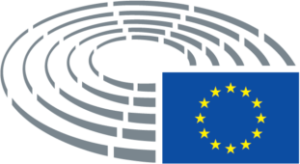It is a silent, deceitful killer that spares no family and continues to kill millions of people every year. As we celebrate World Cancer Day, it’s important to remember that 40% of Europeans will suffer from cancer in their lifetime, and cancer is the second most common cause of death in the EU after cardiovascular disease. It is the reason why we in the EPP have made it Europe’s mission to beat cancer.
“Cancer is the second most common cause of death in the EU”
Terrifying though the figures are, they should not obscure the fact that research is advancing and that numerous initiatives are being taken to combat this scourge. The €4 billion plan announced by the Commission for 2021, at the instigation of our plan to beat cancer, bears witness to the real commitment of the European authorities. This determination to act was renewed this week with the announcement of recommendations on vaccination against diseases that can lead to cancer. Properly implemented, these measures will help to improve early detection and prevention, and enhance patients’ quality of life.
Nevertheless, if cancer is to be totally eradicated, more needs to be done as a matter of urgency, particularly in relation to certain factors that are not yet sufficiently targeted.
“We need to facilitate cross-border collaboration between cancer experts”
I’m thinking first of all of the numerous bureaucratic and administrative obstacles that our researchers and doctors are confronted with on a recurring basis, even within the single market, and which are blocking progress. We need to facilitate cross-border collaboration between experts and the pooling of research data, while protecting the confidentiality of patient data. Cooperation between small biotechnology companies and universities, research centres and incubators, as well as public-private cooperation, must also be encouraged throughout Europe.
“There can be no “first class” and “second class” Europeans”
It is also vital to combat the disparities in access to healthcare across the EU, which have grown steadily with inflation. Whether you are in Eastern or Western Europe, the chances of recovery and access to treatment still vary far too widely. This is unacceptable! Simple, rapid solutions such as telemedicine need to be explored.
In the longer term, we also need to encourage wage convergence at EU level to prevent certain countries turning into medical deserts with no healthcare providers. There can be no “first class” and “second class” Europeans when it comes to chances of survival. The same applies to access to certain financial services. All too often, cancer survivors are refused loans because of their medical history. This is unfair. They must have the right to be forgotten.
We also need to invest massively in technologies linked to artificial intelligence and big data, with the aim of making the EU the world leader in medical research and pharmaceutical innovation. In this respect, I believe that particular attention should be paid to developing clinical trials to combat rare childhood cancers, and to research into cancer vaccines. This is within our grasp.
“We need to respond better to the difficulties faced by carers”
Finally, I know from my own family experience how essential the role of relatives is, and how helpless they can feel when faced with illness. We need to respond better to the difficulties faced by carers, by exploring a number of avenues, including special leave for carers.
When it comes to health, if the terrible COVID pandemic proved one thing, it’s that alone you’re nothing. The same is true of cancer. A single State will never be as effective as a union of 27 Member States. With just a few months to go before the European elections, we need to keep reminding the public of this message.




